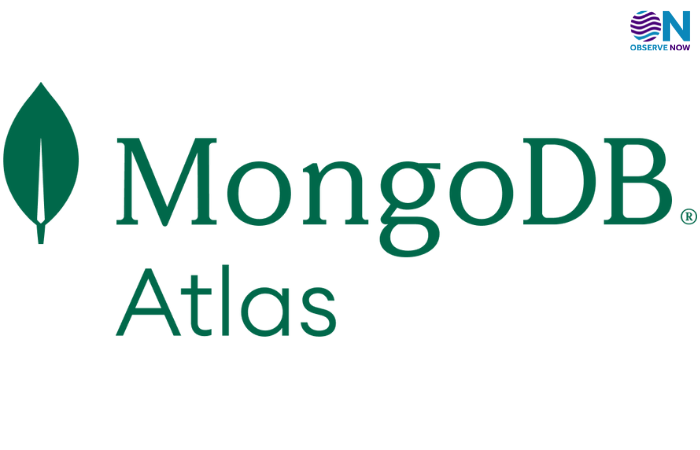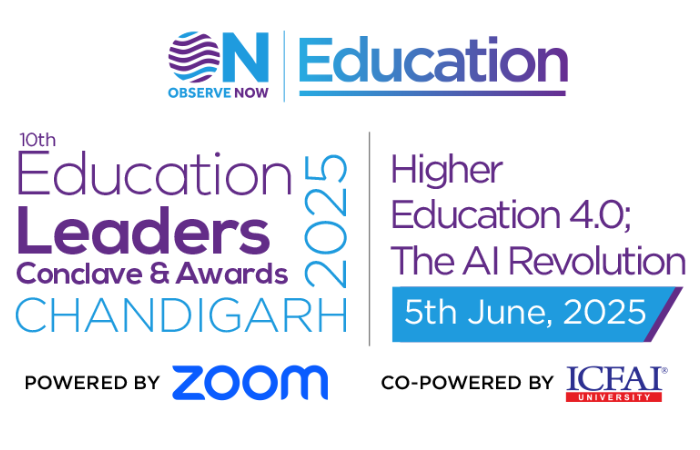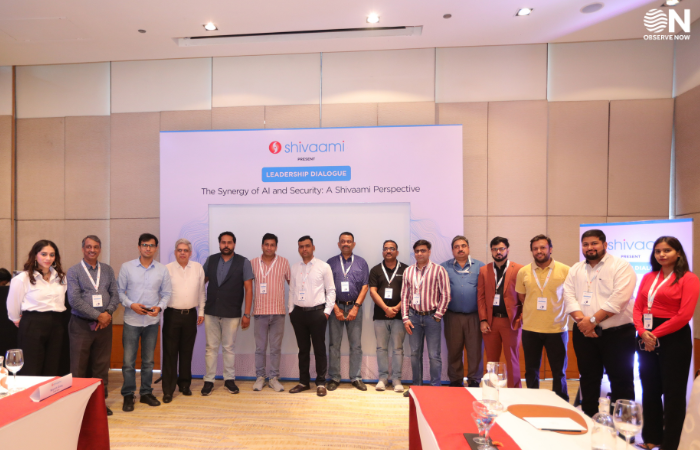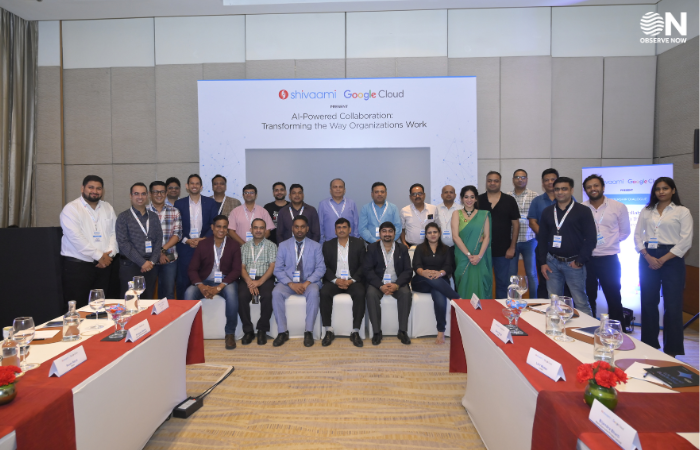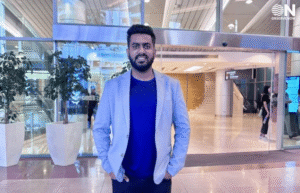ObserveNow in collaboration with Google Cloud and Shivaami recently held an exclusive, closed-door roundtable with select industry leaders from healthcare to software development to deliberate on emerging cloud strategies, AI integration, and enterprise modernization. The invitation-only gathering was aimed at fostering open, high-level dialogue around Artificial Intelligence’s evolving role in business innovation.
The roundtable commenced with opening remarks by Ms. Taniya Tikoo, Co-founder and Editor-in-Chief at ObserveNow. Ms. Tikoo highlighted, “At ObserveNow, we see ourselves at the center of a powerful shift where conversations around cloud innovation, AI integration, and enterprise modernization are no longer just technical discussions, but strategic imperatives.”
“As a B2B media and marketing company, our role is to bring all the right stakeholders to the table—industry leaders, technology providers, and forward-looking enterprises to foster meaningful dialogue. Through platforms like our be-spoke sessions, we create the space for partners like Google Cloud and Shivaami to not only showcase innovation but also listen, learn, and collaboratively define what the future of intelligent workplaces looks like. Whether it’s cost efficiency or rethinking workflows, we are proud to be the bridge where these critical conversations begin.” Ms. Tikoo added.
Following the introduction, participants shared insights into how their respective organizations are leveraging AI to enhance efficiency and drive innovation. This interactive exchange highlighted the diverse applications of artificial intelligence across industries.
Abhinav Kishore, Head of SMB at Google India, expanded on these insights, underscoring AI’s role in enhancing trust, productivity, and user experience. He introduced the concept of Agentic AI, describing it as a significant evolution in enterprise automation. “Agentic AI is where AI doesn’t just interpret data but also acts on it”, he explained. “Imagine an agent integrated with your company’s ticketing system, not only summarizing issues but taking the initiative to escalate them based on context and urgency.”
Adding to the conversation, Juned Kasmani, Associate Director at Shivaami, remarked on the practical applications of AI in the enterprise ecosystem. “Artificial Intelligence is being adopted in the right direction”, he said. “It enables the creation, analysis, and optimization of digital workflows. Agentic solutions, in particular, are proving to be effective problem-solvers, and we have dedicated experts working on platforms like AgentSpace to further this innovation.”
Sanjeev Kumar, Head IT at EIL raised his concern and said, “The challenge comes from three areas—data security, system enjoyability and liability, and the cost model. We are looking for a solution that’s automatic and predictive in nature—especially useful for facilities management teams monitoring these sites. Sometimes faults may go unnoticed—how can AI help identify such cases more effectively than humans? There are millions of items—how do we track, manage, and maintain them efficiently while utilizing space cost-effectively?“
Following the conversation, Mr. Rohit stated, “You need to work very hard on the security part of AI—don’t be scared, but be vigilant. We have an AI-based security solution monitoring real-time spaces—it’s deployed in Maruti Suzuki, Solon, and across metro stations and airports worldwide. During an AI conference, someone raised a concern: suppose the system is deployed at an airport and shows a 1% error—what if it wrongly identifies someone as a terrorist? I told him: we should not depend 100% on AI. There should always be human intervention in critical applications.” To which, Mr. Ramjas responded, “AI can help in temperature security—it can notify us with alerts or video feeds before anything actually happens. We are SAP users, and in production companies, each unit follows a specific production plan. AI can assist by aligning material movement with these requirements. As per the requirement, AI can help in real-time decision-making for material issuance and movement across production units.”
Mr. Abhijeet added to the conversation and stated, “We are using AI in our organization for procuring hardware—laptops, printers, and other devices. Each user is interacting with AI individually through security apps. AI is currently being used at the individual user level, not as a unified organizational strategy. The challenge is that senior executive management wants to implement AI at an organizational level—that’s the big leap we’re still working on. There’s no doubt that AI can help—especially in summer operations, reputation management, and maintenance. The objective is not to reduce manpower—it’s to enhance it with the support of AI.”
Adding further depth and to answer the questions, Ankita, a representative from Google Cloud, shared her perspective on how AI is being strategically implemented across industries to drive measurable outcomes. “At Google, we start by deeply understanding a customer’s business—what’s driving revenue, where growth is happening, and where automation can make an immediate impact,” she explained. “It’s not about a one-size-fits-all solution; it’s about identifying the right starting point for each enterprise. Once priorities are clear, we build automation frameworks that align with those goals.”
Ankita also highlighted how AI-powered systems are already making autonomous decisions in manufacturing. “Factory machines today are capable of evaluating raw materials, logistics challenges, and operational constraints on their own. They notify you when inventory is low and initiate restocking—completely autonomously,” she noted. Reflecting on the broader implications, she added, “While AI enhances productivity—reducing processes from 40 minutes to just one—it doesn’t replace the human element. Especially in areas like recruitment, the human touch remains essential. What AI offers is a chance to reimagine workflows, increase efficiency, and empower employees by integrating intelligent tools into their daily tasks.”
The session concluded with a dynamic exchange of real-world use cases and strategic reflections. The collaborative atmosphere encouraged attendees to share ideas on how AI can reshape not only individual workflows but entire organizational structures. The event reinforced the imperative for responsible and strategic AI adoption as businesses look to future-proof their operations.
By bringing together a curated group of industry pioneers, ObserveNow, Google Cloud, and Shivaami succeeded in creating a powerful forum for dialogue and innovation. As AI continues to mature and evolve, such engagements play a crucial role in shaping the digital blueprint for tomorrow’s intelligent enterprises.


